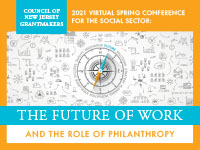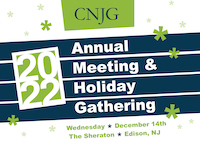Site Search
- resource provided by the Forum Network Knowledgebase.
Search Tip: Search with " " to find exact matches.
The Provident Bank Foundation on Monday announced the Major Grant recipients for its first cycle of 2023. The foundation awarded $291,000 of total funding to 26 nonprofit organizations within the foundation’s three priority areas of Community...
The Princeton Area Community Foundation has awarded a total of $250,000 in grants to local nonprofits for summer initiatives that reach children and teens, including many whose families would not otherwise have access to affordable, high-quality...
Horizon Blue Cross Blue Shield of New Jersey, through its philanthropic arm, The Horizon Foundation for New Jersey, issued $1,171,000 in grants to 26 non-profit organization throughout New Jersey, for the second round of grants in 2023.
Prudential Financial has awarded “microgrants” to 54 nonprofits and individuals throughout the city to help them continue their effort to address community issues and improve quality of life for people and families.
Prudential,...
The Healthcare Foundation of New Jersey (HFNJ) is pleased to announce that it has awarded $2,802,521 to twenty New Jersey nonprofit organizations in its third quarter grant cycle of 2023. The total includes renewal funding for 15 projects that had...
The Westfield Foundation recently held its most recent Board Meeting and awarded grants totaling over $40,000 to several local organizations, including two new grantees.
Pediatric Health Center at Trinitas Hospital: The Westfield...
The New Jersey Historic Trust, an affiliate of the New Jersey Department of Community Affairs (DCA), today approved a total of $14,038,043 in grant recommendations from the Preserve New Jersey Historic Preservation Fund to save and promote historic...
Nonprofit funder GreenLight Fund Greater Newark today announced its first investment selection, bringing the EMS Corps program to Greater Newark. EMS Corps is a proven workforce development initiative that provides participants with a five-month paid...
The Provident Bank Foundation on Tuesday announced the recipients of its 2023 Signature Grant cycle. The foundation awarded three $100,000 grants to support nonprofit organizations administering bold and innovative programs focused on long-term,...
The F. M. Kirby Foundation Board of Directors announced 249 grants totaling $14,354,050 were made in 2022 to nonprofit organizations working to foster self-reliance and create strong, healthy communities. Over half of these organizations have been...
The Grunin Foundation, in partnership with CNJG, invites you to join the next Monmouth & Ocean County funder roundtable. Join Monmouth and Ocean County funders for a virtual session to discuss the planning of a 2024 Spring PEEP (Party to Enhance...
The Fund for Women and Girls recently celebrated 25 years of impact in the community by awarding $250,000 in grants to local nonprofits that help improve the lives of women and children.
“We are incredibly fortunate to have 25 years of...
Horizon Blue Cross Blue Shield of New Jersey, through its philanthropic arm, The Horizon Foundation for New Jersey, issued $875,000 in grants to 29 non-profit organization throughout New Jersey, for the third round of grants in 2023.
The Robert Wood Johnson Foundation (RWJF) announced the nine communities chosen to receive the 2023 RWJF Culture of Health Prize. The Prize celebrates communities across the country where community members and organizations are collaborating to build...
The Iselin-based Provident Bank Foundation recently announced its Major Grant recipients for its second cycle of 2023. The foundation awarded $410,000 in total to 35 nonprofit organizations within the foundation’s three priority funding areas:...
The Northern New Jersey Community Foundation (NNJCF) joined more than 1,000 community foundations nationwide to celebrate National Community Foundation Week from November 12-18, 2023. During the week, the NNJCF, a not-for-profit, 501(c)(3)...
Impact100 Essex announced that three Essex County nonprofits are the recipients of its 2023 Equity Grants: SHE Wins Inc., AAPI Montclair, and Keys 2 Success.
With over 170 members, Impact100 Essex is a collective philanthropic group...
Impact 100 Jersey Coast awarded four $100,000 Impact grants and five $1,600 Mission grants at their recent event.
The Future of Work and the Role of Philanthropy

Dates...
Shifting Narratives to Change Systems
 Wednesday, December 14, 11:00 am – 3:00 pm
Wednesday, December 14, 11:00 am – 3:00 pm
Luncheon...
